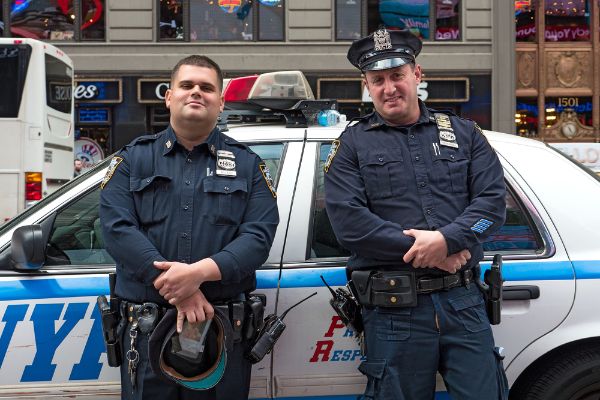
A lawsuit filed by Detective Salvatore Rizzo against New York City’s Civilian Complaint Review Board (CCRB) is a significant development in the ongoing debate about police conduct and accountability.
Rizzo’s lawsuit is rooted in an encounter on September 27, 2020, where he and other officers approached two individuals sleeping in a car. The situation escalated when Rizzo drew his weapon after one of the individuals, a 17-year-old, made a sudden movement. Rizzo argues that his reaction was a standard procedure given the circumstances, emphasizing that he holstered his weapon shortly after the teenager complied with his command to show his hands. This encounter led to the issuance of a summons for a small amount of marijuana found in the vehicle.
In April 2022, the CCRB initiated disciplinary proceedings against Rizzo, accusing him of unnecessary use of force. Rejecting a plea deal that would have cost him vacation pay, Rizzo chose to go to trial and was eventually exonerated. However, the detective alleges that CCRB Chairwoman Arva Rice and prosecutor Nishat Tabassum continued to defame and slander him even after his acquittal.
The core of Rizzo’s defamation claim centers on a letter written by Tabassum to the NYPD Commissioner, accusing Rizzo of racial bias and suggesting that he would not have drawn his firearm if the teenager were white. This accusation, Rizzo argues, is baseless and damaging to his reputation and career.
Paul DiGiacomo, president of the NYPD Detectives’ Endowment Association, has expressed support for Rizzo, highlighting the need for accountability for those who make unfounded accusations against law enforcement officers. Rizzo’s lawyer, James Moschella, has voiced concerns that the CCRB’s actions could hinder Rizzo’s effectiveness as a field intelligence officer.
This lawsuit marks a pivotal moment, as it is the first instance of a police officer, cleared of misconduct, legally challenging the review board. Jonathan Darche, executive director of the CCRB, defends the board’s actions, asserting that the lawsuit is an attempt to undermine civilian oversight of the police.
As the case unfolds, it will be closely watched for its implications on police accountability, civilian oversight, and the delicate balance between maintaining public safety and protecting civil rights.
These content links are provided by Content.ad. Both Content.ad and the web site upon which the links are displayed may receive compensation when readers click on these links. Some of the content you are redirected to may be sponsored content. View our privacy policy here.
To learn how you can use Content.ad to drive visitors to your content or add this service to your site, please contact us at [email protected].
Family-Friendly Content
Website owners select the type of content that appears in our units. However, if you would like to ensure that Content.ad always displays family-friendly content on this device, regardless of what site you are on, check the option below. Learn More





